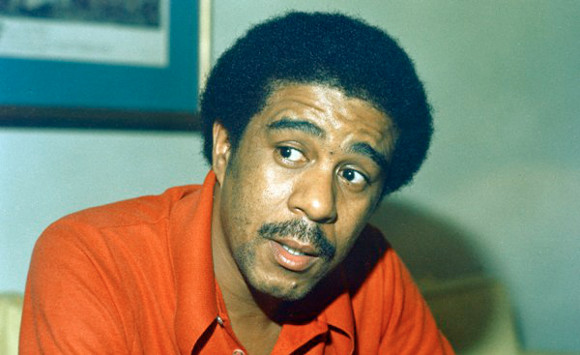
Richard Pryor was a popular American stand-up comedian and one of the most influential entertainers of his time. He was born on December 1, 1940, in Peoria, Illinois. He had a troubled childhood; his mother worked as a prostitute and his father was a bartender, boxer and World War veteran. His parents married for a short time when he was three years old but divorced very soon. Pryor grew up in his grandmother’s brothel and admitted to being a victim of sexual abuse as a child. He developed a fondness for movies , which helped him to escape the troubles in his life.
Pryor had a great sense of humor, even as a child. He was the funny kid in class who always amused his classmates with his antics. He started acting in his early teens, with his first part in a production of Rumplestiltskin at his local theatre. He was expelled from school at the age of 14 and worked a string of odd jobs before joining the military in 1958. He left after two years and began to pursue his career as an entertainer. He started performing in African American clubs at East St. Louis and Pittsburgh. In 1963, he made his television debut on shows such as “On Broadway Tonight”, “The Merv Griffin Show” and “the Ed Sullivan Show”. He also ventured into movies, with small parts in films such as “The Busy Body” and “Wild in the Streets”. He also began touring extensively and performed at several clubs in various cities.
Pryor’s reputation as an actor and entertainer began to grow and he started performing in more popular films such as “Lady Sings the Blues” in 1972, starring Diana Ross. The following year, he received his first Emmy Award nomination for “Outstanding Writing Achievement in Comedy or Variety” for his work on “The Lily Tomlin Show”. The year after that, he received his first Emmy Award for Outstanding Writing in a Comedy, Variety, or Music Special for the comedy special “Lily”. His own comedy writing won him three consecutive Grammy Awards for Best Comedy Album between 1974-76. Despite the crude and profane language of his stand up acts, Pryor was extremely popular with both black and white fans. He also continued his successful career as an actor, starring in box office hits such as “Silver Streak” and “Greased Lightning”.
Pryor took a long break from acting and performing due to personal troubles. However, he made a comeback in the 1980s and won two more Grammy Awards for Best Comedy Recording – one for “Rev. Du Rite” in 1981 and one for “Live on the Sunset Strip” in 1982. He became one of the highest paid actors and earned $4 million for his role in “Superman III”, which was reportedly more than the film’s star Christopher Reeve.
Pryor had a very troubled personal life, which he often used in his wry comedic acts. He was married for short periods a total of seven times and had 4 children from his marriages. He also had a long history of alcohol and substance abuse. He was first charged with tax evasion and then put on probation, fined, and ordered to get psychiatric treatment for firing on his wife’s car. In 1980, he set himself on fire after days of cocaine abuse, in an attempt to take his own life, which caused burns on more than 50% of his body. He was diagnosed with multiple sclerosis in the 1990s but continued to perform despite the degenerative nature of his disease. His last film appearance was in David Lynch’s Lost Highway in 1997.
Pryor became the first person to receive the Mark Twain Prize for American Humor from the Kennedy Center in 1998. His autobiography, titled “Pryor Convictions: And Other Life Sentences” was a critical success. He died in December 2005 due to a heart attack. Richard Pryor was one of the most influential comedians and entertainers of his time and paved the way for several other great comedians such as Eddie Murphy and Chris Rock.
